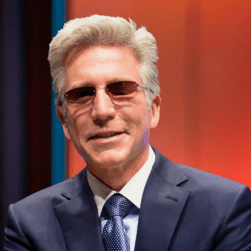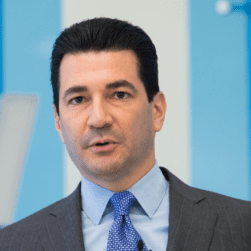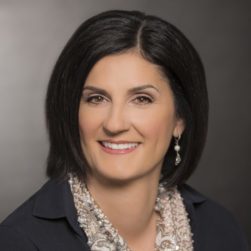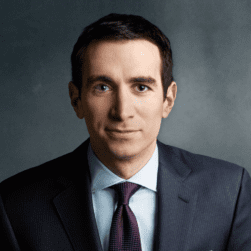

1st Annual WEC Member Summit
Speakers
Jewel, Singer-Songwriter
Erika H. James, The Wharton School of the University of Pennsylvania Dean
Dan Schulman, PayPal President and CEO
Louise Pentland, PayPal Chief Business Affairs & Legal Officer and WEC Member
Dr. Scott Gottlieb, Former FDA Commissioner & CNBC Contributor
1st Annual WEC Member Summit
The headlines on how global and national events impact how we work now and going forward.
Key Points
- "It is important for every leader to create an environment and a culture where people are actually comfortable talking about difference," says Erika H. James, Dean of The Wharton School, when asked how companies can get diversity, equity and inclusion right.
- Every remote work model won't compute for some industries or job functions that can’t operate in a permanent, asynchronous, radically transparent environment, but there are ways to meet the obstacle of adjusting to it.
- Gottlieb lists establishing a lab, routinely testing employees, quick turnaround on testing, including symptomatic screening and contact tracing as elements of effective testing practices. This model helps notify community spread.
- Communicating to employees how operations would work in an emergency and the need and execution for safety practices became a best practice for companies like Quest Diagnostics.
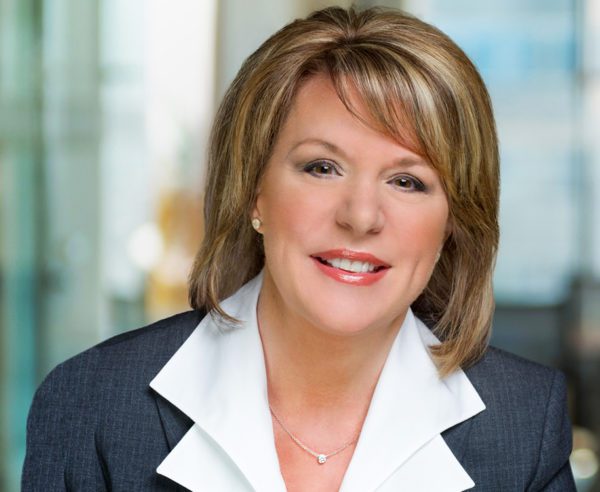
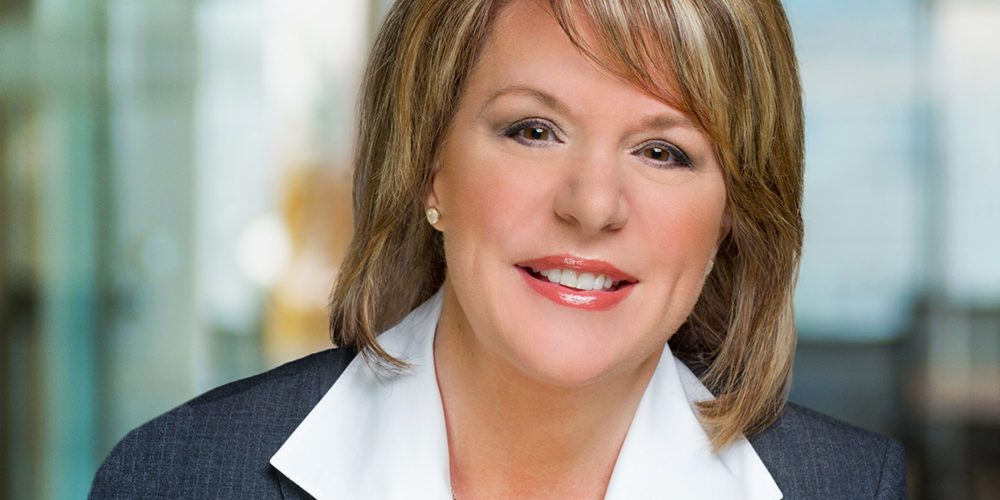
The Role of CHROs on Boards
Host
Seema Mody, CNBC Global Markets Reports & Host, “Trading Nation.”
Speakers
Tami Erwin, Verizon Business Group EVP & CEO
Gaby Toledano, Keystone COO
Kathy Waller, The Coca-Cola Company Former CFO & Board Member of Delta Airlines & Beyond Meat
Cali Williams Yost, Flex+Strategy Group CEO & Founder
Dan Kaplan, Korn Ferry Senior Client Partner
The Role of CHROs on Boards
An interactive, inspiring, and tactical session on the role of HR leaders on corporate boards, and the path to get there. Covering: Interacting with your company’s board; pitching and advocating for key issues critical to your workforce, including diversity and inclusion solutions; and expectations for CHROs seeking outside board placement opportunities. In partnership with Korn Ferry.
Key Points
- Your peer network will be important to your ongoing career progression.
- When joining a board, look for one with diverse members who can add new insight into ways of thinking.
- "The opportunities that I've missed may have been less about somebody not giving me the shot and more about me declaring my intent and desire to have the role," said Tami Erwin, EVP & CEO, Verizon Business Group.
- It's important to know your audience. "Not everyone is where you are at," said Gaby Toledano, COO, Keystone, now Chief Talent Officer at ServiceNow. "You want to know who you are working with; you want to understand that very well and do your homework."
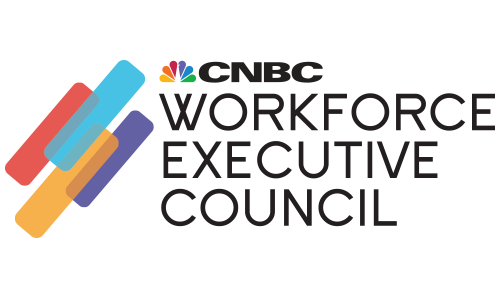

#WhatsWorking: Back to School 2020
Host
Jen Geller, Senior Editior, CNBC Councils
#WhatsWorking: Back to School 2020
Employee schedules and accommodation have never been more challenging as the country's back to school plans vary from town to town and district to district. In this WEC exclusive member-driven event, peers discussed how they smartly navigated these challenges, issues that have come up, and help problem-solve your biggest concerns now.
Key Points
- Many organizations aren't onsite but have found it beneficial to host panels or open forums with parents virtually. This provides the opportunity to identify ways to support families not only in different areas but, with children at different education levels.
- Innovative ways to connect such as homework clubs, employee home classrooms where employees can tutor their peers' children, and Slack channels act as support groups for parents looking for best practices for teaching their child at home.
- Internal flexibility, such as pushing meetings back five minutes so parents can have an extra moment to set their kids up for each call and allowing kids to sit in on meetings, provides parents with the cultural support to balance their work and newfound at-home life.
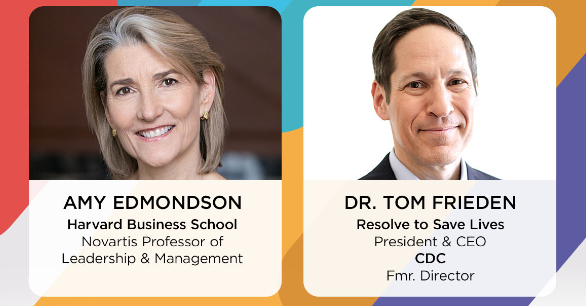

Reopening, Risks, & Resilience
Host
Meg Tirrell, CNBC’s Senior Health and Science Reporter and Sharon Epperson, CNBC Senior Personal Finance Correspondent
Speakers
Amy Edmondson, PhD, Harvard Business School Novartis Professor of Leadership & Management
Dr. Tom Frieden Resolve to Save Lives President and CEO & Former Director of the CDC
Dr. Michael Osterholm, Center for Infectious Disease Research & Policy Director
Reopening, Risks, & Resilience
The "need to knows" to best support your workforces in the next phase of the pandemic.
Key Points
- Workforce leadership is more important than ever. Keeping workforces safe and supported while also focusing on results is a challenge top of mind for many leaders.
- Frieden advises employers to remember, "You're not an island. You're a part of the community where you're placed. The single most important thing you can do to protect your employees is to make sure your community is doing a good job at Covid control."
- "You need to look at the immediacy of right now, but you also need to look at the longshot," said Osterholm. "We now need to understand what we are going to do."
- Transparency is about being clear and honest, but it's important to make sure employees are still hopeful.
- Edmondson says the best way to communicate leadership's views is to do so frequently, communicate that you are providing a safe channel for feedback, and listen always.

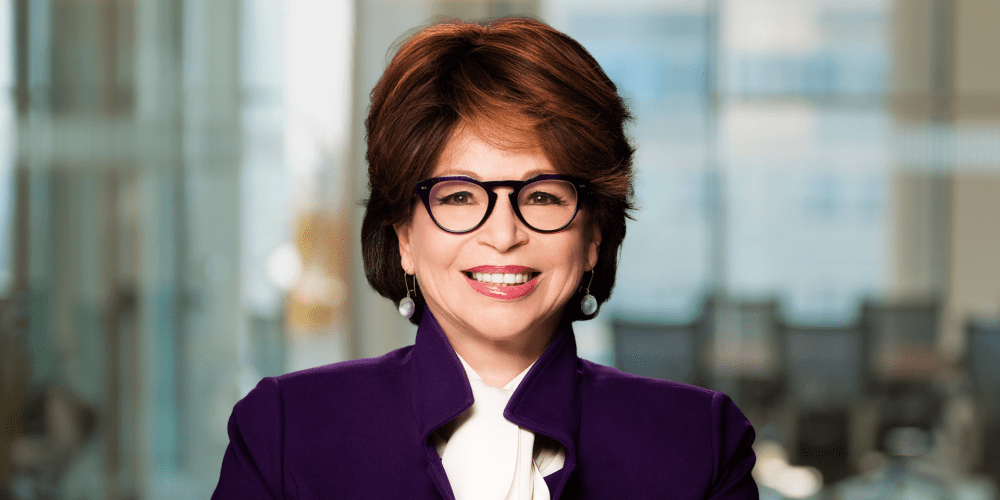
Race, Equitable Recovery and Resilience: How recent events should change the way we think about the future of work and how we move forward
Host
Andrew Ross Sorkin, Co-Anchor of “Squawk Box"
Speakers
Valerie Jarrett, Former Senior Advisor to the Obama Foundation
Race, Equitable Recovery and Resilience: How recent events should change the way we think about the future of work and how we move forward
CNBC’s Andrew Ross Sorkin moderates a private WEC member roundtable with featured guest, Valerie Jarrett, Senior Distinguished Fellow at University of Chicago Law School, senior advisor to the Obama Foundation and ATTN.
Key Points
- According to Jarrett, "The systemic racism that we've seen manifested in behavior through law enforcement to businesses is something that we all have the change on our own if what we expect is a government and business with rules of their own in place to protect all of our citizens, and that's beginning now."
- Changes happen when we begin by looking within our own companies and asking if it is in order.
- CEOs can do more than lip service by asking themselves, "What am I doing in my environment to be inclusive and to truly be welcoming? Am I going beyond what has historically been done?"
- "Until we are ready to actually lead with our values, it's going to be difficult to make progress," Jarrett said.
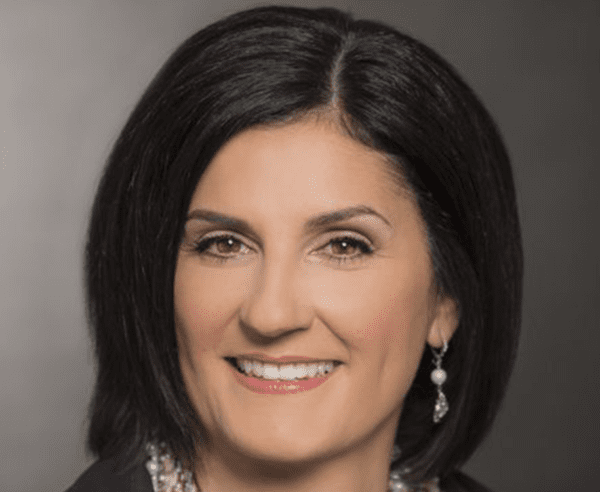
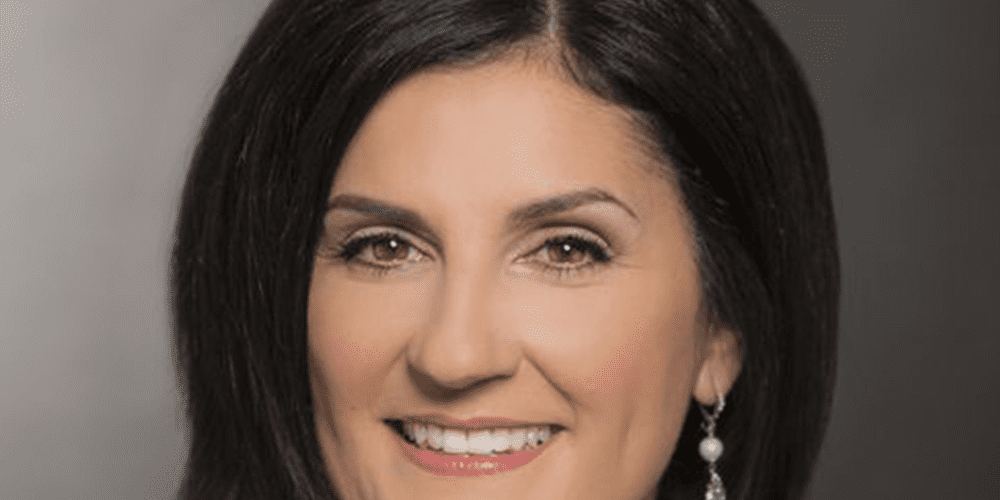
#WhatsWorking: Return to the Workplace
Host
Jen Geller, CNBC Senior Councils Editor
Speakers
Fran Katsoudas, Cisco Executive Vice President and Chief People, Policy & Purpose Office
#WhatsWorking: Return to the Workplace
Managing a complex Covid-19 response while pivoting to return to workplace planning.
Key Points
- A private, off-the-record, members-only conversation about leadership and management in the midst of the pandemic.


Mental Health & Productivity During & After the Pandemic
Host
Sharon Epperson, CNBC Senior Personal Finance Correspondent
Speakers
Bill Duane, Bill Duane and Associates Founder and CEO & Former Google Head of Well Being and Sustainable Performance Development Programs
Mental Health & Productivity During & After the Pandemic
A conversation and Q&A on mental health and productivity during the Covid-19 pandemic.
Key Points
- "Sometimes great difficulty can open us up to new ways of doing things," according to Duane. "There are huge possibilities for transformation."
- Psychological safety can play a major factor in creating great teams. The ability to put ideas out in front of a group without fear creates space for innovation.
- The Covid-19 pandemic has exposed short-term needs (working from home and the effects of the medical crisis) as well as long-term needs (technology changes, labor changes, and what systems are available to be changed).
- The time is now to reset and move forward with new ways of changing systems at different levels.






